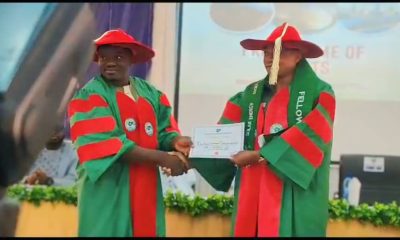Education
Diversity, Education and Autonomy: Developing Nigeria in the Years Ahead
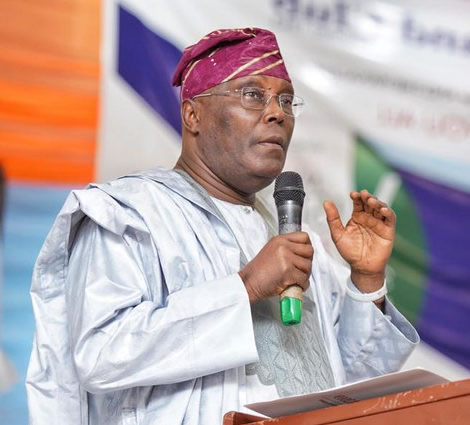
By Atiku Abubakar
I want to talk to you about three interrelated things: Diversity, Education, and Autonomy and their connection to Nigeria’s development in the coming years.
Permit me to start with a personal story. When I was a little boy my father, who was very poor, refused to send me to school.
He did not hate or dislike education of any type. And it was not about school fees; in fact, we were even paid to go to school in those days. He just needed me to herd cattle.That was normal in those days, and, is still so for many families, even today. For refusing to send me to school, he was sent to jail by the local authorities.
Eventually I did go to school. Unfortunately, my father did not live long enough to see where education would take me. He drowned while trying to cross a local river.
He was probably under 40 years of age by the time he died. I was an only child and was raised by my maternal grandparents. As a primary school pupil when I returned from school, I would take our neighbour’s cattle to the bush for rearing in exchange for grains that my grandparents used to help feed the family. So, I was contributing, at that very early age, to the family’s economic wellbeing.
During those early years in school, I had the privilege of being thought by some young American Peace Corps volunteers who approached teaching differently from what we were used to. It struck me that the Americans were more liberal in their approach and encouraged us pupils to think critically about solving problems rather than making us memorize and spit out the same things that were drilled into us.
They also encouraged us to question or challenge their ideas and to be critical of them if necessary. That approach intrigued me and lit a fire in me that still burns to this day.
I eventually left my local Adamawa community and furthered my education in Kano and Zaria. At the School of Hygiene, Kano, I was the Student Union President. So apart from meeting those wonderful Americans, education also took me beyond my locality and began to expose me to the vastness of my region, Northern Nigeria, and its immense diversity.
Education is what helped me to secure a job in the Nigerian public service, a job that took me to many other parts of Nigeria, including its southern edges.
I got to see the vastness and variety of our land, the diversity of its peoples, cultures and levels of development. And in all these travels and movements I got to understand the country, and made so many life-long friends.
These were indeed life-changing experiences. Put simply, we are a very diverse people. But, as anyone who has mingled with other peoples will tell you, diversity does not prevent us from making long-lasting friends across the divides. Diversity is not something to be afraid of.
Diversity does not prevent a country from reaching its potentials. Rather it should make a country reach its potentials faster, but only if that diversity is harnessed properly, if the diverse peoples and places are pulled together for a common purpose, drawing on the strengths of each. In the wrong hands, especially in the hands of opportunistic politicians and demagogues, diversity can become a problem, a tool of division, violence, and destruction.
I realized quite early that education gave me so much and that, if made available to many more young people, will also give them so much and help the country progress just like other countries that take education seriously.
Education enlightens us and opens our eyes to better understand our environment and the world around us; it helps us increase our incomes; it helps us maintain good personal hygiene; it helps us to understand our bodies better and to take steps to improve our overall health; it helps us to understand the challenges facing our communities, our country and the world, and how we can apply ourselves to solving even a tiny part of those challenges. Thus, education helps to provide us with the tools to change the world.
What about autonomy? Education and the success it brought to me helped to make me become a freer person, a more autonomous person.
The more educated you are the more control you tend to have over your life; the more freedom you have to choose what you want to become or what you want to do, where you want to live and with whom you want to associate. Put simply, the more educated you are, the more freedom you tend to have.
Therefore, the educated person is a more autonomous person. So, in a way, you can say that education is freedom. Education is autonomy. Autonomy is critical for the individual or group to reach their full potentials. If a person or a group is held down by others, they cannot achieve their full potentials.
When you are free you are more adventurous; when you are autonomous you are more creative. When you are freer you take more decisions based on what you desire.
As it is with the individual so it is with nations. Education is a social good. Countries that value education and make the necessary investments in it also tend to have more control over their affairs. The nations that treat education and innovation more seriously and invest massively in them are also the leading nations of the world. And in the 21st century education and innovation are key to national prosperity.
And there is more. Educating girls and women is even more impactful. Research spanning over three decades shows that for a society to make progress it is even more important to educate women and girls because of the positive impact it has on the development of children and their health and those of the family.
These the reasons why my philanthropy has focused the most on education.
After so many years of giving scholarships to students from less well-to-do families and helping friends and communities build schools across the country, I began to build a school system in my hometown, Yola, that today incorporates all levels, from kindergarten to university.
Let me tell you a little bit about my town and my state. Adamawa is it at the North East edge of Nigeria, clearly isolated from the power and commercial centres such as Abuja, Kano, Lagos and Port Harcourt.
Although it has produced a good number of successful and prominent Nigerians, it is rather poor. The vast majority of the people are subsistence farmers struggling to eke out a living while battling draught and climate change and, more recently, the Boko Haram insurgency in the parts of the State bordering Borno State.
The insurgency has displaced many people from their homes and farms thereby threatening their very livelihood. In fact, the UN World Food Programme estimates that the number of internally displaced persons in the North East surpassed 2 million by last September.
The existence of the university proved so timely and because Yola was (and remains) safe, the university assisted immensely in feeding nearly 3000 IDPs during the height of the Boko Haram insurgency. And it has been helping the rescued Chibok girls complete their education. In fact, 57 of those girls registered for undergraduate studies at American University of Nigeria this Semester.
University education will prepare them and other students, just like the fresh graduates sitting here today for a life of more meaningful contributions to society and of course, more personal fulfilment.
So why does it seem like the importance of education for a society such as ours is so difficult for some to understand? Why do we seem reluctant to the idea of providing good quality basic education for all our people?
Why can’t we see that the neglect of education for our people has huge long-term consequences which have become obvious already as our country is engulfed in security challenges across its length and breadth?
We persuade parents to vaccinate their children against infectious diseases because vaccination is a good thing. Why don’t we do the same for education? Parents should be persuaded, even forced, to send their children to school so they, at least, acquire basic education.
That basic education should be free and compulsory. I believe that if there are severe consequences for parents who refuse to send their children to have free primary and secondary education, we would not have over 13 million out-of-school children in Nigeria. Certainly not. Our per capita income would not have stagnated for 40 years. Think about it, our per capita income is today what it was forty years ago.
Beyond basic education we should have a variety of options for post-secondary education – university, polytechnic, colleges of education, vocational training for those who would rather acquire vocational and technical skills for particular trades.
As we prioritize education, let us also make full use of our diversity for the development of our country. In addition to ethnic, religious, and regional diversity, we also have diverse endowments – agriculture, crude oil, solid minerals, tropical rain forests, Savanah grasslands; lakes, rivers and streams that dot and snake around the country. As different parts of the country are at different levels of development, local priorities would differ. Earning capacities differ.
Therefore, we need to tailor our development policies and practices to acknowledge this diversity and benefit from it. The constituent parts of the country need a greater degree of autonomy to develop their local economies according to their endowments and priorities.
The excessive centralization of power and concentration of resources in the federal government have not served us well. Instead, they have encouraged a domineering all-knowing federal government that stretches itself into every aspect of our lives with little positive results to show.
Rather we have had excessive corruption, mediocrity, generations of citizens who hope to become rich without work, emasculation of state and local initiatives and a lack of creative and healthy competition among states as they all look towards Abuja for handouts every month.
The development strategies that have produced 13 million out-of-school children, millions of unemployed or under-employed youth, including those with university degrees, and a level of insecurity that threatens to splinter the country into tiny bits controlled by armed warlords are clearly the wrong ones. We must change direction.
We must reverse the concentration of power and resources at the centre. And we must make serious and conscious efforts to identify the potentials and strengths of each state and section of this country and work to maximize its contribution to the development of our country as it is supported to develop itself.
That is how you allow greater autonomy while pulling together. Greater autonomy for states will allow ideas to germinate from anywhere and blossom.
If Kano becomes a thriving industrial city, Jigawa would benefit and soon become an industrial centre as well. If we support the emerging automobile centres in Nnewi, Kaduna, Bauchi and Lagos, the tanneries of Kano would be the natural local suppliers of leather to that sector. If we reverse the on-going de-industrialization and attract tire manufacturing companies back to supply that sector, jobs will be created and the rubber plantations in Edo and surrounding states will benefit. I can go on and on, but you get the picture.
If we have good transport and communication infrastructure and a reasonably free market, no section of a country would develop without the others soon joining in. Capital moves and expands to take advantage of new opportunity centres.
Reduction of federal powers and responsibilities and greater autonomy for states would, for instance, allow a state with very low demand for university spots to decide whether its priority is another federal university or investments in primary, secondary teacher education to ensure that its young population has basic education, preparatory for possible university or vocational education in the future.
I commend Achievers University and its determined and focused Founder, Bode Ayorinde.
When I lived and worked in this part of the country, I realized that the Ondo was the centre of education in the South West. Thankfully, this university will help to maintain that reputation while also benefitting people from other parts of the country.
Thank you Bode for keeping the Ondo spirit and character alive. And thank you for providing this important educational alternative for these young men and women whose lives have certainly been transformed.
To the graduating students, it is your day, your convocation, your chance to go forth and show the world what you can do. To show what you can become. To show that you can lead. To show what problems you can help the world to solve.
Let your imagination run wild. Imagine where you would be in 10 or 20 years from now. Imagine where Nigeria would be. Would you be satisfied with it?
If so, what role would you have played in getting it there? If not, what role would you play in helping to get it to where you would be satisfied with its progress? What would be Nigeria’s population then? How educated would that population be?
What would be the place of crude oil in the world’s energy mix by then? What would that mean for Nigeria? Is there a role that you can play in positioning Nigeria for that trajectory?
Or would you just be fighting the wars we fight today over the sharing of oil revenues?
Would you rather be one of those who move Nigeria beyond oil and other fossil fuels not only to help the country’s economy thrive in a new post-oil world but to also reduce global warming and protect our eco-system? Would you be the one who solves Nigeria’s perennial challenge of providing electricity?
Could you be the one who transforms the Made-in-Aba brands into global icons? Would you be content with debating about which region or zone should produce the next President or governor or rather organize and work to ensure that the country has governance and accountability structures, rules and processes which would ensure that where the president or governor comes from becomes less important?
Remember that Tesla and Amazon, which have made Elon Musk and Jeff Bezos the two richest men on the planet were only founded in 2003 and 1994 respectively.
They became what they are today because they solved problems for the world. Think of the problem you can solve for your community, your country and the world and, hey, you might become our own version of Elon Musk or Jeff Bezos. Once more congratulations. You made it. Now go and make more.
Being Convocation Lecture delivered by Atiku Abubakar, GCON, former Vice President, Federal Republic of Nigeria, at Achievers University, Owo, Ondo State, Nigeria.
I thank you all for listening.
Education
Education, key to Changing Nigeria, says NTI D-G
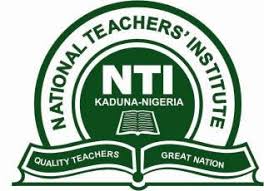
Prof. Sadiya Sani-Daura, Director-General, National Teachers’ Institute (NTI), Kaduna, says education is key to changing and transforming Nigeria in all ramifications.
Report says that she spoke on Wednesday in Kaduna while declaring open nationwide training workshops for 222 basic school teachers drawn from across Nigeria.
The five-day training is also focusing on E-learning, climate literacy and green life skills.
The training is taking place simultaneously in Kaduna and Lagos, with the participants drawn from the 26 states and FCT.
It has as its theme, ‘Digital Pedagogy, Remote Learning, E-Learning, Climate Literacy and Green Life Skills.’
The training was organised by the Institute in collaboration with the Universal Basic Commission (UBEC).
She said, “With the right attention given to the education sector, a lot of the negative narratives in Nigeria will change for the better.
” A lot of things went wrong hitherto because education was not getting the desired attention.
“With education getting the desired attention, everything will change, including combating criminality.
“It is however gladdening that the present administration of President Bola Tinubu is unwaveringly committed to redressing the obnoxious situation.”
The director-general further reiterated the unwavering commitment and dedication of the Institute to teacher training and development.
According to her, NTI will remain steadfast in making the Nigerian teachers globally competitive,hence helping to restore the lost global glory of the nation.
Sani-Daura, said they represent a milestone in the collective effort to advance teacher education and strengthen the foundations of basic education in the country.
She said that NTI, in collaboration with UBEC has consistently championed innovative strategies to equip the teachers with the skills and knowledge required to address the evolving demands of modern education.
Sani-Daura said, “Today’s workshops reflect this commitment, providing an avenue for professional development that aligns with global best practices and national priorities.
“The first focus area, which is digital pedagogy, remote teaching and e-learning, comes at a time when technology has become an integral part of the teaching and learning process.
“Teachers must be empowered with the tools and skills to harness the potential of digital platforms to enhance instruction, engage learners and foster critical thinking.
“This training is expected to bridge the gap between traditional teaching methods and the emerging trends in education technology as well as prepare the teachers to thrive in the digital age.”
On climate literacy and green life skills, the director-general decried that the world was grappling with the effects of climate change, saying, “our responsibility as educators goes beyond academics.
“Teachers play a critical role in shaping attitudes and behaviours that promote environmental sustainability.
In a welcome address, Dr Bature Salisu, Special Technical Assistant to the director-general, said that the collaboration between NTI and UBEC underscored the shared vision and partnership to advance teacher education.
He said, “This initiative is a testament to the NTI’s unwavering commitment in enhancing the professional capacity of teachers and addressing contemporary educational challenges.”
According to Salisu, the training reflects a collective resolve to equip teachers with innovative teaching methodologies and critical life skills to prepare students for the demands of the 21st century.
The acting Registrar of the Institute, Mrs Zainab Aliyu, described the theme as apt and timely.
She stressed that Nigerian teachers must not lag behind, urging them to be creative using technology.
The teachers attending the workshop at Kaduna were drawn from all the Northern states and FCT while the participants at the Lagos centre were drawn from all the Southern states. (NAN)
Education
Private School Operators Deny Charging Exorbitant Fees, Hiring Unqualified Teachers
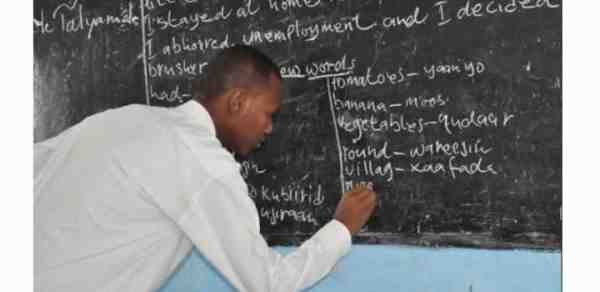
Some owners of private schools in the South-South region say they only charge school fees that are commensurate with the quality of service being offered.The private school owners made the expression during a News Agency of Nigeria (NAN) survey in Akwa Ibom, Cross River and Rivers.Mr Godwin Okwu, the Chairman, National Association of Proprietors of Private Schools, (NAPPS), Cross River chapter, said that the fees charged by private school in the state were not exorbitant.
Okwu further said that it was untrue that private schools employed unqualified teachers. “Whatever we charge as school fees is commensurate with the quality of service we provide.“Private schools may look expensive, this is because the government does not subsidise their services the way they do for public schools.“In some public schools, the government pays for everything including staff, and still collect fees from the students,” he said.He said it was wrong and unfair to compare the public school system to the private school system in terms of fees because public schools enjoyed the full support of government.“What we should consider is the quality of service and the product. It is not in doubt that the private school system is producing better results.“So it is unfair and contradictory to say that private schools employ substandard teachers, how then are we able to produce good results if our teachers are of low quality?” he said.The NAPPS chairman however said that private school owners were sometimes forced by economic realities to carry out minimal increase in fees.“Currently, the minimum wage for workers has increased, and private schools are expected to pay. How else do we raise the money to pay salaries?Okwu urged the state ministries of education to be more proactive and thorough in undertaking their inspectorate and monitoring functions.“As the regulator, the ministry should ensure uprightness. The interest of the children should be in the forefront,” he said.On his part, Mr Daniel Effiong, a Director of Inspection in Cross River Ministry of Education, said it was misleading to say that private schools employed low quality teachers.He said that the ministry had been resilient in monitoring the activities of private schools in the state.“We check the qualifications of the teachers, the environment, toilets among others before approval and upgrading.“This exercise is not just once, we do it regularly. Surely there are bad eggs in the system, we penalise them when they are uncovered,” he said.Also speaking on the issue, Mr Ubokmfon Williams, NAPPS Chairman in Akwa Ibom, said that private school owners in the state had not increased fees in a long time.Williams said that the economic situation in the country had made it difficult for private school owners to increase school fees.“With the way the economy is, any unnecessary increment in school fees may lead to massive withdrawal of students.“If you understand school business, if you truly want to remain in business, you have to avoid unnecessary increase in fees,” he said.The NAPPS chairman however said that sometimes, economic realities force private owners to increase fees in order to meet up.“Take salary as an example, if you don’t increase fees, how do you pay salaries of your workers. When you can’t pay salaries, your employees will go elsewhere.“As private school operators, we look critically at the interest of parents and the economic situation in the country before taking decisions.“We also want to remain in business, we are aware that the priority of every parent at the moment is food. We are very careful not to lose our market,” he said.Speaking on the reason private schools do not have uniform school fees, Williams said that criteria such as location and quality of service are considered by schools before fixing their fees.“Some schools pay for excursions, school bus, medicals, security, and some schools are located far away from town.“One thing is that no private school unilaterally fixes school fees, every private school liaises with its Parents Teacher Association before deciding what the fees will be,” he said.Speaking on the quality of services being offered by private schools, the NAPPS chairman, said that private schools did not treat the issue of teachers qualification with levity.“We hire not just good and professional teachers, we ensure that our teachers posses the skills to impart knowledge.“We are aware that a teacher may be a professional but may not skillful, so in the private school system, we are goal oriented,” he said.Mr Assam Abia, an Eket-based parent whose children are in private schools, said that more families took interest in sending their children and wards to private schools because the public school system failed at some point.“Parents are only seeing the fees charged by private schools as exorbitant because of the current economic challenges.“What I see is that school proprietors are responding to the basic economic law of demand and supply by increasing their fees,” he said.He said that the employment situation in the country had left many graduates without jobs, and that those who did not train to become teachers were now working as teachers.“Private schools are in business, they must make profits. The remedy lies in the monitoring agencies to do their jobs effectively.“The ministry or department that supervises private school should be more thorough and proactive, we want to see them in action,” he said.Abia also called for an overhaul of the education sector through legal and policy frameworks that would put the sector on the right track.“There is an urgent need for the Federal Government to declare a state of emergency in the education sector. Governments need to pay attention to the activities of private schools.In Rivers, a Legal Expert, Dr Hilda Desmond, blamed the fees being charged by private schools on the lack of supervision by regulatory authorities.Desmond, the Chairman, Nigerian Bar Association, Ahoada Chapter, said that poor regulation and supervision of private schools had negatively affected primary and secondary school education in the state.“The education sector has been grossly bastardized particularly by private operators. Private operators exploit parents without making efforts to step up operational standards.“What we call exorbitant fee is purely class driven. Some elite see high school fees as a sign of quality, and prefer to enroll their children in such schools.“It is a matter of choice, here are still schools with qualified teachers, affordable school fees and appreciable learning environment,” she said.The lawyer expressed concerns that some schools greedily converted child minders to classroom teachers and pay meagre salaries.She said that it was an act of wickedness for school operators to use poor quality teachers at the nursery and primary school levels.“Once there is a faulty nursery and primary education, the entire learning process of the child becomes ruined. So we must strive to get it right from the first stage.”Sadly, most private schools are in business, rather than employ qualified teachers that should impart knowledge, they compromise examination standards,” she said.Mr Isijana Adasi, a Port Harcourt-based Education Consultant, said that all tiers of government had failed to provide the atmosphere for quality education to thrive.Adasi, also the Lead Advisor, Adasi Science Project, identified inadequate budgetary provisions for education as a major reason for the inefficiency in supervision and monitoring of the private school system in the country.“This is part of the reasons that education inspectors have become vulnerable, and are now compromising standards.”Most school inspectors visit high profile schools with the mindset of receiving money and other packages without being thorough about their duties.“So, until regulatory authorities become committed to their duty of enforcing standards, the average Nigerian child may not get the best education, it does not matter how much parents pay as fees.Mr Isaiah Uwa, a Bori-based parent, urged the Federal Government to take more stringent steps towards improving the quality of service being offered by private schools.“Part of the efforts should also be to monitor what they charge as school fees. Quality and standard should be the primary consideration.“Some private schools claim to adopt British or American curriculum instead of the government approved curriculum. This shouldn’t be allowed.“Some of these schools make their pupils to skip classes and some statutory examinations, this is a gross disservice to the society,” he said.(NANEducation
Varsity Don Highlights Opportunities for Benue Economic Growth
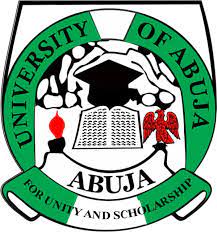
By David Torough, Abuja
Dean of the School of Postgraduate Studies at the University of Abuja, Professor Ukertor Gabriel Moti, has said Benue State’s economy remains a paradox of vast potential and persistent poverty.Speaking at the maiden reunion and award ceremony of Club De Pals held in Abuja, Prof.
Moti outlined key issues affecting the state’s economic performance and suggested pathways for growth. “Benue is rich in agricultural produce and natural resources, yet it struggles with poverty, unemployment, and weak fiscal performance,” he stated, adding that the state’s reliance on federal allocations was unsustainable. Moti added that the state’s Gross Domestic Product (GDP) stands at N4.27 trillion, ranking 12th in the country, but its Internally Generated Revenue (IGR) averages just N1.59 billion per month, making Benue heavily dependent on Federation Account Allocation Committee (FAAC) funds.“In 2022, Benue was the fourth most FAAC-dependent state in Nigeria, which is a dangerous position for poverty reduction efforts,” Prof. Moti said. He noted that 75% of the population is classified as dimensionally poor, with inadequate access to essential services such as health, education, and decent living conditions.Insecurity was identified as a major factor hindering economic development in the state, affecting agriculture and discouraging investments. “Insecurity has cast a long shadow over Benue, forcing the closure of markets like the Zaki Biam international yam market,” he remarked.Prof. Moti highlighted several strategies to rebuild the Benue economy, including prioritizing infrastructure development, creating favourable tax policies, and improving electricity supply through public-private partnerships.“The government must focus on agro-processing, industrialization, and creating a conducive environment for businesses. A strong partnership between the government, private sector, and civil society is essential for sustainable growth,” he said.He also urged civil society organizations like Club De Pals and local entrepreneurs to invest in small-scale ventures, noting that collective efforts were critical to achieving economic recovery.“Rebuilding the Benue economy requires deliberate and sustained action. It is a shared responsibility that must involve everyone,” Prof. Moti stated.










